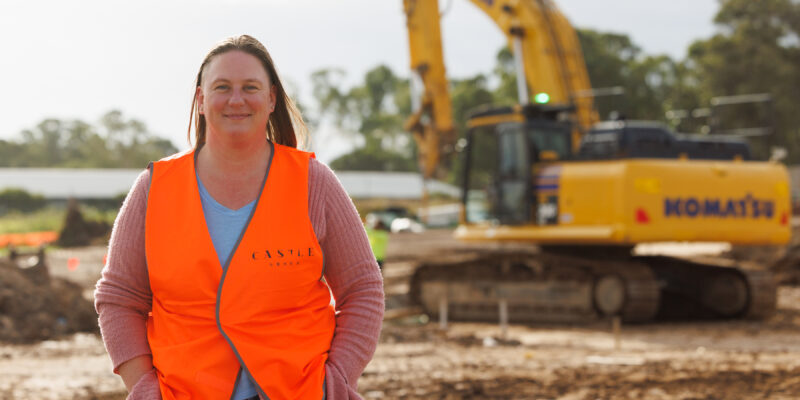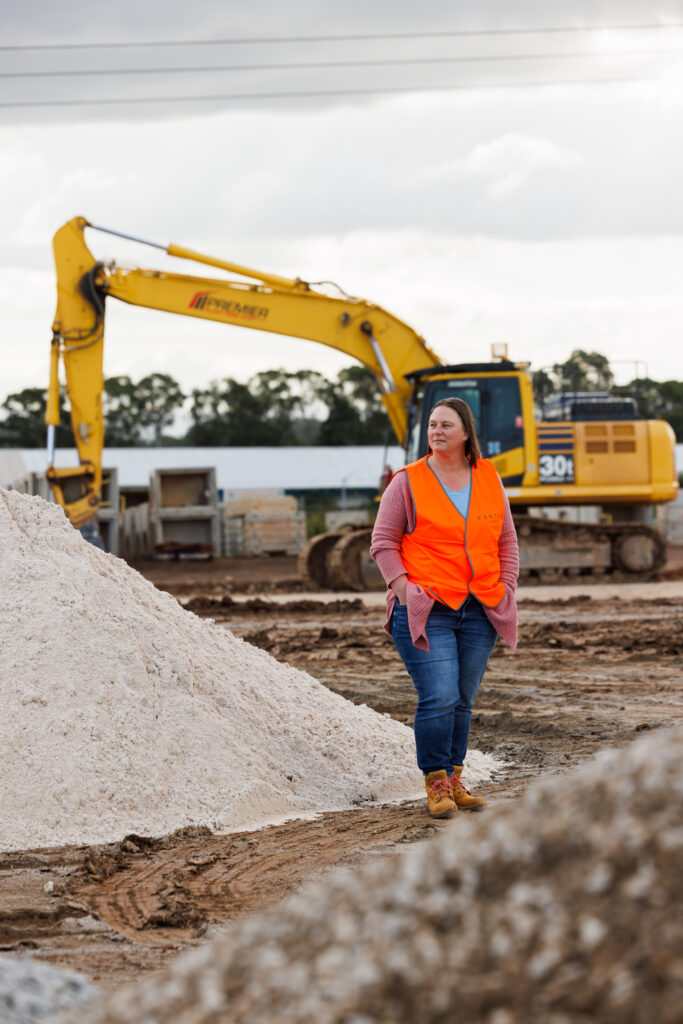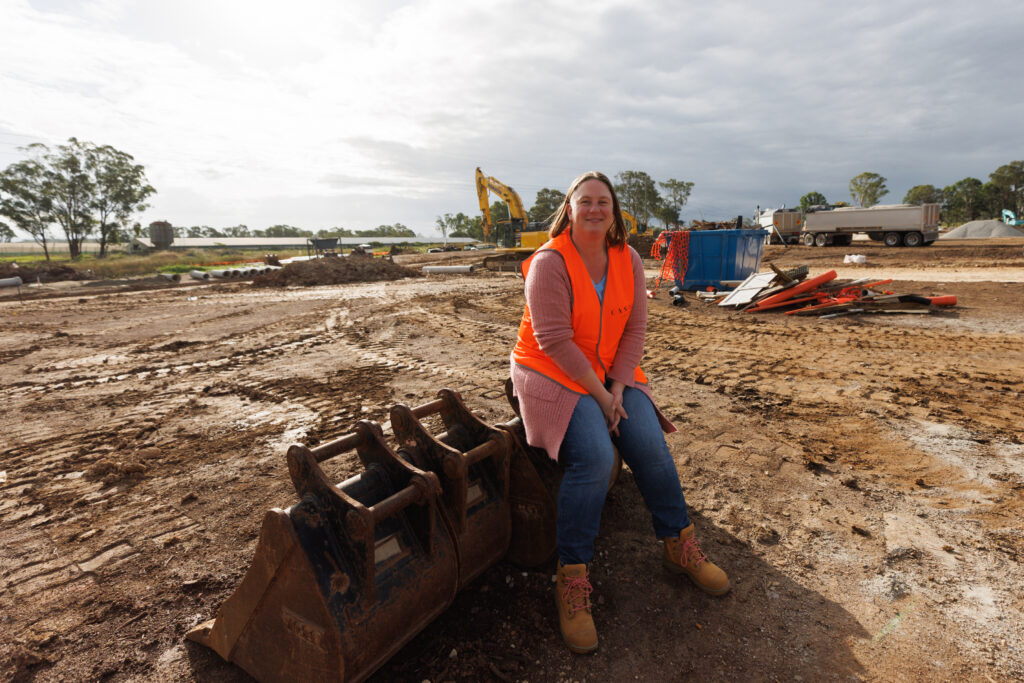Conveyancing in the corporate construction world
Castle Group’s Susan Aagesen shares her passion for property and the challenges and rewards that a career in conveyancing has brought.

CASTLE Group’s Susan Aagesen shares her passion for property and the challenges and rewards that a career in conveyancing has brought.
Australian Conveyancer: How did you start your career in conveyancing?
SA – I’ve always been interested in law and helping people navigate the legal side of buying and selling homes. I started out as a receptionist at a small law firm and quickly realised my passion was in property transactions. From there, I was promoted to secretary and then paralegal. I have had many in house paralegal roles in several different industries, which is how I’ve been able to expand my knowledge and progress into new areas of property law. I’ve worked in the health sector, looking after leasing and licences at St Vincent’s Hospital, I worked with Dymocks Group on franchise agreements, several law firms and property development companies including ALAND and now, Castle Group. Studying at university for my Conveyancing Licence while working at a law firm gave me invaluable hands-on experience.
AC: What is the workload like for conveyancers?
SA – The workload for a conveyancer varies depending on the matters that they are dealing with. Some are straightforward matters and others can be complicated. Some conveyancing firms are doing more than 150 exchanges a month and some are doing 30-40 a month. When working on Off The Plan transactions, you can have an intense month of 300 plus settlements in a period of 21 days. While attending to these settlements you are still working on exchanges and other conveyancing matters.
No two days are the same, some transactions are straightforward, while others require problem-solving skills. A normal day usually involves reviewing contracts, liaising with clients, banks, and real estate agents, conducting property searches, and ensuring all legal requirements are met before settlement.
Deadlines in conveyancing can be tight and time management is key. You are constantly shuffling and prioritising urgent matters and ensuring clear communication with clients to avoid last-minute surprises.
One challenge that we face at times is managing client expectations. It is often assumed that conveyancing is just paperwork, but there’s a lot of legal due diligence behind the scenes. Sometimes clients underestimate how long the process takes, so it’s our job to set realistic expectations from the start.
AC: What do you enjoy most about conveyancing?
SA – I enjoy conveyancing because of the dynamic and ever-evolving nature of the work, where no two transactions are the same. The variety keeps things interesting and allows me to continuously expand my knowledge. I thrive on thinking outside the box, particularly when faced with complex matters that require creative problem-solving and strategic decision-making. Rather than seeing challenges as obstacles, I embrace them as opportunities to apply my skill, knowledge, and experience to find an effective solution that works for all parties.
I enjoy assisting mums and dads, first-home buyers, through what can often be an overwhelming and emotional process and possibly their biggest financial decision. Helping clients navigate the legal and procedural aspects of property transactions, especially when complications arise, is something I find rewarding. I enjoy the challenge of untangling intricate matters, ensuring a smooth and successful outcome while providing reassurance and guidance along the way to my clients. Hearing the relief and excitement from my clients when their property transaction is completed reinforces my passion for conveyancing and the meaningful impact I have on their lives.

AC: What can the industry do better to train conveyancers?
SA – For anyone studying or starting out in conveyancing, mentoring is important. Conveyancing is more than just selling and purchasing properties. It would be a great help if there were short mentoring courses run in the evening or weekends. These courses could cover such transactions as Retirement Village, Company Title, Off The Plan purchase, GST, Trust, Put and Call Option, and many more. Trying to attend a course during office hours is hard for many.
AC: What are the main challenges for conveyancers in 2025?
SA – Things are always changing, and staying on top of all the compliance changes and requirements can be challenging.
The Government is tightening anti-money laundering and counter-terrorism financing regulations which will require conveyancers to carry out further due diligence with their client. Legislative updates, such as stamp duty reforms, foreign investment rules and changes to property tax laws require conveyancers to be constantly updated on the latest changes to provide the correct advice. One way that helps staying up to date for Conveyancers is being a member of the Australian Institute of Conveyancing NSW Division Ltd (AIC), they email newsletters of up and coming changes. Another great source is Revenue NSW.
Cybersecurity and Fraud Prevention is another big challenge for everyone. The increase of email fraud with property transactions is getting smarter and harder to detect. Educating clients to be careful at the start of their transaction is really important.
AC: As Castle Group is involved in several launches in early 2025, could we get a brief state of the market overview.
SA – Castle Group is a leading residential land developer in Western Sydney, specialising in low and medium density developments in growth areas. We’re in the middle of a housing crisis so we’re still seeing strong demand for homes in areas like Austral, Leppington and Schofields, driven by Government investment in local infrastructure. With further interest rate cuts expected, the general consensus is that demand will keep growing.
I’m sure to be kept busy at Castle Group, with our current $1.6 billion pipeline of projects to be delivered by 2030.
NB – Castle recently paid $120 million for a 41-hectare land holding at Austral in Sydney’s south-west and intends to build 550 dwellings there. It’s among seven Castle sites in the growth area, and with $1.6 billion in projects to be delivered by 2030.

AC: What are the key trends that conveyancers should watch for or adapt to?
SA – I think AI will be a game changer for conveyancers.
AI is significantly transforming the conveyancing industry by streamlining processes, enhancing security, and improving efficiency. One of the biggest impacts is in automated document review and contract analysis, where AI-powered tools can quickly scan contracts, highlight risks, and flag inconsistencies, reducing manual workload and improving accuracy. Having these tools assist with allowing us to focus more, providing expert legal guidance whilst AI helps handle the administrative process. It allows us to operate more efficiently, which in turn improves the clients experience.
Will be interesting to see where AI takes us the next 12-24 months again.
AC: Tips for those starting out in conveyancing.
SA – Learn as much as you can from your mentor, team members and classmates at university. Make checklists and notes, attend webinars and seminars where you can. Become a member of the AIC, join the NSW Conveyancing Facebook group, workshop with peers and don’t be afraid to ask for help and guidance.
Conveyancing plays a crucial role in the property market. With the right skills and dedication, it’s a profession that offers a dynamic and fulfilling career path.
Find out who else Australian Conveyancer has been profiled in our People section here





